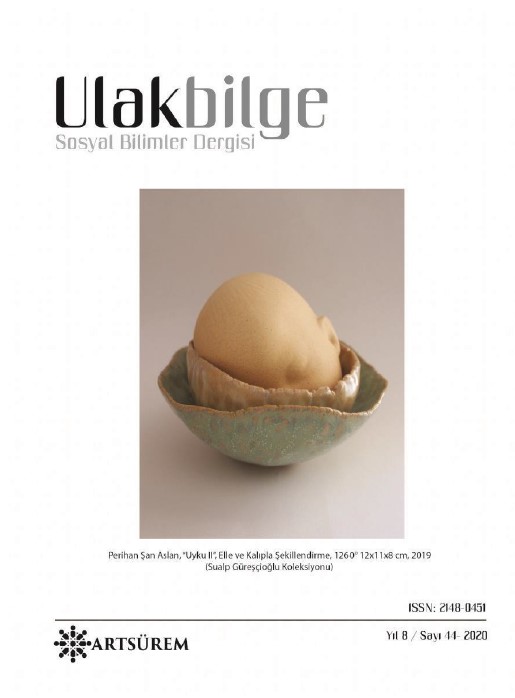SÜRDÜRÜLEBİLİR SOSYAL SORUMLULUK PROJESİ OLARAK DEZAVANTAJLI GRUPLARIN ENTEGRE YAŞAM ALANLARININ PLANLANMASI
PLANNING INTEGRATED LIVING SPACES FOR DISADVANTAGED GROUPS AS A SUSTAINABLE SOCIAL RESPONSIBILITY PROJECT
Author(s): Umay Yılmaz ARERSubject(s): Architecture, Rural and urban sociology
Published by: Sanat ve Dil Araştırmaları Enstitüsü
Keywords: social responsibility project; disadvantaged individuals; living space project; creating integrated living spaces;
Summary/Abstract: Social responsibility projects and researches are necessary to meet the needs of disadvantaged individuals-living beings and to create new living opportunities as well as to ensure public welfare. Disadvantaged groups are composed of individuals incapable of sustaining themselves or have limited abilities, cannot solve their own problems, and in constant need for outside help to maintain their daily routines. In addition to this definition emphasizing innate qualifications of these individuals or groups, another important point to note is that disadvantageousness can also present itself as living conditions defined by extrinsic factors. In this context, the study aims to create common experience areas by tackling the issue of social exclusion considering the dual dimensions of disadvantageousness. As a rising concept in the 21st century, social responsibility imposes certain obligations to individuals and institutions. The study aims to create integrated living spaces for disadvantaged individuals or groups. Within the defined hypothesis, the study proposes creating self-sufficient centers for elderly, children and animals, where common living spaces allow unconstructed encounters just like real world that would also permit the addition of supplementary structures, which will reinforce the continuation of these possible relations or transform them. The data set compiled in the research was analyzed with appropriate tools and the findings indicated that disadvantaged groups were experiencing an alienation problem in social motivation. For the problems identified after a through survey of the literature as well as issues discovered during observations and in-person meetings, solution suggestions were drafted. In line with this, creating an infrastructure for an integrated living space for the group identified as part of the social responsibility project is planned. By expanding the definition of “disadvantaged individuals” incorporated into the scope, this project can be transformed into an innovative project in the future.
Journal: Ulakbilge Sosyal Bilimler Dergisi
- Issue Year: 8/2020
- Issue No: 44
- Page Range: 33-45
- Page Count: 13
- Language: Turkish

